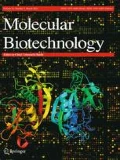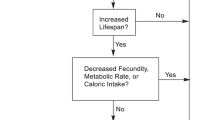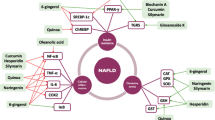Abstract
Among males, prostate cancer has become the second leading cause of cancer-related deaths in North America, with similar trends in many Western and developing countries. One way to control prostate cancer is through chemoprevention, which refers to the administration of synthetic or naturally occurring agents to block, reverse, or delay the process of carcinogenesis. For a variety of reasons, the most important of which is human acceptance, for chemopreventive intervention, naturally occurring diet-based agents are preferred. Prostate cancer is an ideal candidate disease for chemopreventive intervention, because it grows very slowly, likely for decades, before symptoms arise and a diagnosis is finally established, it has a long latency period, and it is typically diagnosed in men >50 years of age. Most chemopreventive agents are antioxidant in nature. We have been defining the usefulness of dietary anti-oxidants for chemoprevention of prostate and other cancers. It is increasingly appreciated that some of these dietary anti-oxidants are nature’s gift molecules endowed with cancer preventive and therapeutic properties. This review will focus on prostate cancer chemopreventive effects of polyphenolic anti-oxidants derived from green tea and pomegranate. It is a challenge to custom-tailor these gift molecules as cocktails in concentrations that can easily be consumed by humans for delaying prostate and other cancers.
Similar content being viewed by others
References
Jemal, A., Siegel, R., Ward, E., Murray, T., Xu, J., & Thun, M. J. (2007). Cancer statistics, 2007. CA: A Cancer Journal for Clinicians, 57, 43–66.
Sporn, M. B., & Suh, N. (2000). Chemoprevention of cancer. Carcinogenesis, 21, 525–530.
Boone, C. W., Bacus, J. W., Bacus, J. V., Steele, V. E., & Kelloff, G. J. (1997). Properties of intraepithelial neoplasia relevant to the development of cancer chemopreventive agents. Journal of Cellular Biochemistry, 28–29, 1–20.
Adhami, V. M., Ahmad, N., & Mukhtar, H. (2003). Molecular targets for green tea in prostate cancer prevention. The Journal of Nutrition, 133, 2417S–2424S.
Siddiqui, I. A., Adhami, V. M., Saleem, M., & Mukhtar, H. (2006). Beneficial effects of tea and its polyphenols against prostate cancer. Molecular Nutrition and Food Research, 50, 130–143.
Klein, E. A. (2005). Chemoprevention of prostate cancer. Critical Reviews in Oncology and Hematology, 54, 1–10.
Sim, H. G., & Cheng, C. W. (2005). Changing demography of prostate cancer in Asia. European Journal of Cancer, 41, 834–845.
Platz, E. A., Leitzmann, M. F., Michaud, D. S., Willett, W.C., & Giovannucci, E. (2003). Interrelation of energy intake, body size, and physical activity with prostate cancer in a large prospective cohort study. Cancer Research, 63, 8542–8548.
Schuurman, A. G., Goldbohm, R. A., Brants, H. A., & van den Brandt, P. A. (2002). A prospective cohort study on intake of retinol, vitamins C and E, and carotenoids and prostate cancer risk (Netherlands). Cancer Causes and Control, 13, 573–582.
Malik, A., Afaq, F., Sarfaraz, S., Adhami, V. M., Syed, D. N., & Mukhtar, H. (2005). Pomegranate fruit juice for chemoprevention and chemotherapy of prostate cancer. Proceedings of the National Academy of Sciences of the United States of America, 102, 14813–14818.
Katiyar, S. K., & Mukhtar, H. (1996). Tea in chemoprevention of cancer: Epidemiologic and experimental studies. International Journal of Oncology, 8, 221–238.
Wilding, G. (1995). Endocrine control of prostate cancer. Cancer Surveys, 23, 43–62.
Liao, S., & Hiipakka, R. A. (1995). Selective inhibition of steroid 5 alpha-reductase isozymes by tea epicatechin-3-gallate and epigallocatechin-3-gallate. Biochemical and Biophysical Research Communications, 214, 833–838.
Ren, F., Zhang, S., Mitchell, S. H., Butler, R., & Young, C. Y. (2000). Tea polyphenols down-regulate the expression of the androgen receptor in LNCaP prostate cancer cells. Oncogene, 19, 1924–1932.
Gupta, S., Ahmad, N., & Mukhtar, H. (1999). Prostate cancer chemoprevention by green tea. Seminars in Urologic Oncology, 17, 70–76.
Mohan, R. R., Challa, A., Gupta, S., et al. (1999). Overexpression of ornithine decarboxylase in prostate cancer and prostatic fluid in humans. Clinical Cancer Research, 5, 143–147.
Gupta, S., Ahmad, N., Mohan, R. R., Husain, M. M., & Mukhtar, H. (1999). Prostate cancer chemoprevention by green tea: In vitro and in vivo inhibition of testosterone-mediated induction of ornithine decarboxylase. Cancer Research, 59, 2115–2120.
Khan, N., Afaq, F., & Mukhtar, H. (2006). Apoptosis by dietary factors: The suicide solution for delaying cancer growth. Carcinogenesis, 28, 233–239.
Ahmad, N., Feyes, D. K., Nieminen, A. L., Agarwal, R., & Mukhtar, H. (1997). Green tea constituent epigallocatechin-3-gallate and induction of apoptosis and cell cycle arrest in human carcinoma cells. Journal of the National Cancer Institute, 89, 1881–1886.
Gupta, S., Ahmad, N., Nieminen, A. L., & Mukhtar, H. (2000). Growth inhibition, cell-cycle dysregulation, and induction of apoptosis by green tea constituent (−)-epigallocatechin-3-gallate in androgen-sensitive and androgen-insensitive human prostate carcinoma cells. Toxicology and Applied Pharmacology, 164, 82–90.
Gupta, S., Hussain, T., & Mukhtar, H. (2003). Molecular pathway for (−)-epigallocatechin-3-gallate-induced cell cycle arrest and apoptosis of human prostate carcinoma cells. Archives of Biochemistry and Biophysics, 410, 177–185.
Hastak, K., Gupta, S., Ahmad, N., Agarwal, M. K., Agarwal, M. L., & Mukhtar, H. (2003). Role of p53 and NF-kappaB in epigallocatechin-3-gallate-induced apoptosis of LNCaP cells. Oncogene, 22, 4851–4859.
Gupta, S., Hastak, K., Afaq, F., Ahmad, N., & Mukhtar, H. (2004). Essential role of caspases in epigallocatechin-3-gallate-mediated inhibition of nuclear factor kappa B and induction of apoptosis. Oncogene, 23, 2507–2522.
Hastak, K., Agarwal, M. K., Mukhtar, H., & Agarwal, M. L. (2005). Ablation of either p21 or Bax prevents p53-dependent apoptosis induced by green tea polyphenol epigallocatechin-3-gallate. FASEB Journal, 19, 789–791.
Dou, Q. P., & Li, B. (1999). Proteasome inhibitors as potential novel anticancer agents. Drug Resistance Updates, 2, 215–223.
Nam, S., Smith, D. M., & Dou, Q. P. (2001). Ester bond-containing tea polyphenols potently inhibit proteasome activity in vitro and in vivo. The Journal of Biological Chemistry, 276, 13322–13330.
Smith, D. M., Wang, Z., Kazi, A., Li, L. H., Chan, T. H., & Dou, Q. P. (2002). Synthetic analogs of green tea polyphenols as proteasome inhibitors. Molecular Medicine, 8, 382–392.
Wang, S. I., & Mukhtar, H. (2002). Gene expression profile in human prostate LNCaP cancer cells by epigallocatechin-3-gallate. Cancer Letters, 182, 43–51.
Livneh, E., & Fishman, D. D. (1997). Linking protein kinase C to cell-cycle control. European Journal of Biochemistry, 248, 1–9.
Fishman, D. D., Segal, S., & Livneh, E. (1998). The role of protein kinase C in G1 and G2/M phases of the cell cycle. International Journal of Oncology, 12, 181–186.
Liao, S., Umekita, Y., Guo, J., Kokontis, J. M., & Hiipakka, R. A. (1995). Growth inhibition and regression of human prostate and breast tumors in athymic mice by tea epigallocatechin gallate. Cancer Letters, 96, 239–243.
Roomi, M. W., Ivanov, V., Kalinovsky, T., Niedzwiecki, A., & Rath, M. (2005). In vivo antitumor effect of ascorbic acid, lysine, proline and green tea extract on human prostate cancer PC-3 xenografts in nude mice: Evaluation of tumor growth and immunohistochemistry. In Vivo, 19, 179–183.
Siddiqui, I. A., Zaman, N., Aziz, M. H., Reagan-Shaw, S. R., Sarfaraz, S., Adhami, V. M., Ahmad, N., Raisuddin, S., & Mukhtar, H. (2006). Inhibition of CWR22Rnu1 tumor growth and PSA secretion in athymic nude mice by green and black teas. Carcinogenesis, 27, 833–839.
Gingrich, J. R., Barrios, R. J, Kattan, M. W., Nahm, H. S., Finegold, M. J., & Greenberg N. M. (1997). Androgen-independent prostate cancer progression in the TRAMP model. Cancer Research, 57, 4687–4691.
Gupta, S., Hastak, K., Ahmad, N., Lewin, J. S., & Mukhtar, H. (2001). Inhibition of prostate carcinogenesis in TRAMP mice by oral infusion of green tea polyphenols. Proceedings of the National Academy of Sciences of the United States of America, 98, 10350–10355.
Adhami, V. M. , Siddiqui, I. A., Ahmad, N., Gupta, S., & Mukhtar, H. (2004). Oral consumption of green tea polyphenols inhibits insulin-like growth factor-I-induced signaling in an autochthonous mouse model of prostate cancer. Cancer Research, 64, 8715–8722.
Caporali, A., Davalli, P., Astancolle, S., D’Arca, D., Brausi, M., Bettuzzi, S., & Corti, A. (2004). The chemopreventive action of catechins in the TRAMP mouse model of prostate carcinogenesis is accompanied by clusterin over-expression. Carcinogenesis, 25, 2217–2224.
Boyle, P., & Severi, G. (1999). Epidemiology of prostate cancer chemoprevention. European Urology, 35, 370–376.
Adlercreutz H. (1990). Western diet and Western diseases: Some hormonal and biochemical mechanisms and associations. Scandinavian Journal of Clinical and Laboratory Investigation Supplementum, 201, 3–23.
Angwafo, F. F. (1998). Migration and prostate cancer: An international perspective. Journal of the National Medical Association, 90, S720–S723.
Jian, L., Xie, L. P., Lee, A. H., & Binns, C. W. (2004). Protective effect of green tea against prostate cancer: A case–control study in southeast China. International Journal of Cancer, 108, 130–135.
Jatoi, A., Ellison, N., Burch, P. A., Sloan, J. A., Dakhil, S. R., Novotny, P., Tan, W., Fitch, T. R., Rowland, K. M., Young, C. Y., & Flynn P. J. (2003). A phase II trial of green tea in the treatment of patients with androgen independent metastatic prostate carcinoma. Cancer, 97, 1442–1446.
Choan, E., Segal, R., Jonker, D., Malone, S., Reaume, N., Eapen, L., & Gallant, V. (2005). A prospective clinical trial of green tea for hormone refractory prostate cancer: An evaluation of the complementary/alternative therapy approach. Urologic Oncology, 23, 108–113.
Bettuzzi, S., Brausi, M., Rizzi, F., Castagnetti, G., Peracchia, G., & Corti, A. (2006). Chemoprevention of human prostate cancer by oral administration of green tea catechins in volunteers with high-grade prostate intraepithelial neoplasia: A preliminary report from a one-year proof-of-principle study. Cancer Research, 66, 1234–1240.
Longtin, R. (2003). The pomegranate: Nature’s power fruit?. Journal of the National Cancer Institute, 95, 346–348.
Schubert, S. Y., Lansky, E. P., & Neeman, I. (1999). Antioxidant and eicosanoid enzyme inhibition properties of pomegranate seed oil and fermented juice flavonoids. Journal of Ethnopharmacology, 66, 11–17.
Kim, N. D., Mehta, R., Yu, W., Neeman, I., Livney, T., Amichay, A., Poirier, D., Nicholls, P., Kirby, A., Jiang, W., Mansel, R., Ramachandran, C., Rabi, T., Kaplan, B., & Lansky, E. (2002). Chemopreventive and adjuvant therapeutic potential of pomegranate (Punica granatum) for human breast cancer. Breast Cancer Research and Treatment, 71, 203–217.
Toi, M., Bando, H., Ramachandran, C., Melnick, S. J., Imai, A., Fife, R. S., Carr, R. E., Oikawa, T., & Lansky E. P. (2003). Preliminary studies on the anti-angiogenic potential of pomegranate fractions in vitro and in vivo. Angiogenesis, 6, 121–128.
Lansky, E. P., Harrison, G., Froom, P., & Jiang, W. G. (2005). Pomegranate (Punica granatum) pure chemicals show possible synergistic inhibition of human PC-3 prostate cancer cell invasion across Matrigel. Investigational New Drugs, 23, 121–122.
Albrecht, M., Jiang, W., Kumi-Diaka, J., Lansky, E. P., Gommersall, L. M., Patel, A., Mansel, R. E., Neeman, I., Geldof, A. A., & Campbell, M. J. (2004). Pomegranate extracts potently suppress proliferation, xenograft growth, and invasion of human prostate cancer cells. Journal of Medicinal Food, 7, 274–283.
Seeram, N. P., Adams, L. S., Henning, S. M., Niu, Y., Zhang, Y., Nair, M. G., & Heber, D. (2005). In vitro antiproliferative, apoptotic and antioxidant activities of punicalagin, ellagic acid and a total pomegranate tannin extract are enhanced in combination with other polyphenols as found in pomegranate juice. The Journal of Nutritional Biochemistry, 16, 360–367.
Pantuck, A. J., Zomorodian, N., & Belldegrun A. S. (2006). Phase-II Study of pomegranate juice for men with prostate cancer and increasing PSA. Current Urology Reports, 7, 7.
Acknowledgments
The original work from the author’s (H.M.) laboratory outlined in this review was supported by United States Public Health Service Grants R01 CA 78809, R01 CA 101039, P50 DK065303-01 and RO1 CA 120451.
Author information
Authors and Affiliations
Corresponding author
Rights and permissions
About this article
Cite this article
Adhami, V.M., Mukhtar, H. Anti-Oxidants from Green Tea and Pomegranate for Chemoprevention of Prostate Cancer. Mol Biotechnol 37, 52–57 (2007). https://doi.org/10.1007/s12033-007-0047-8
Published:
Issue Date:
DOI: https://doi.org/10.1007/s12033-007-0047-8




